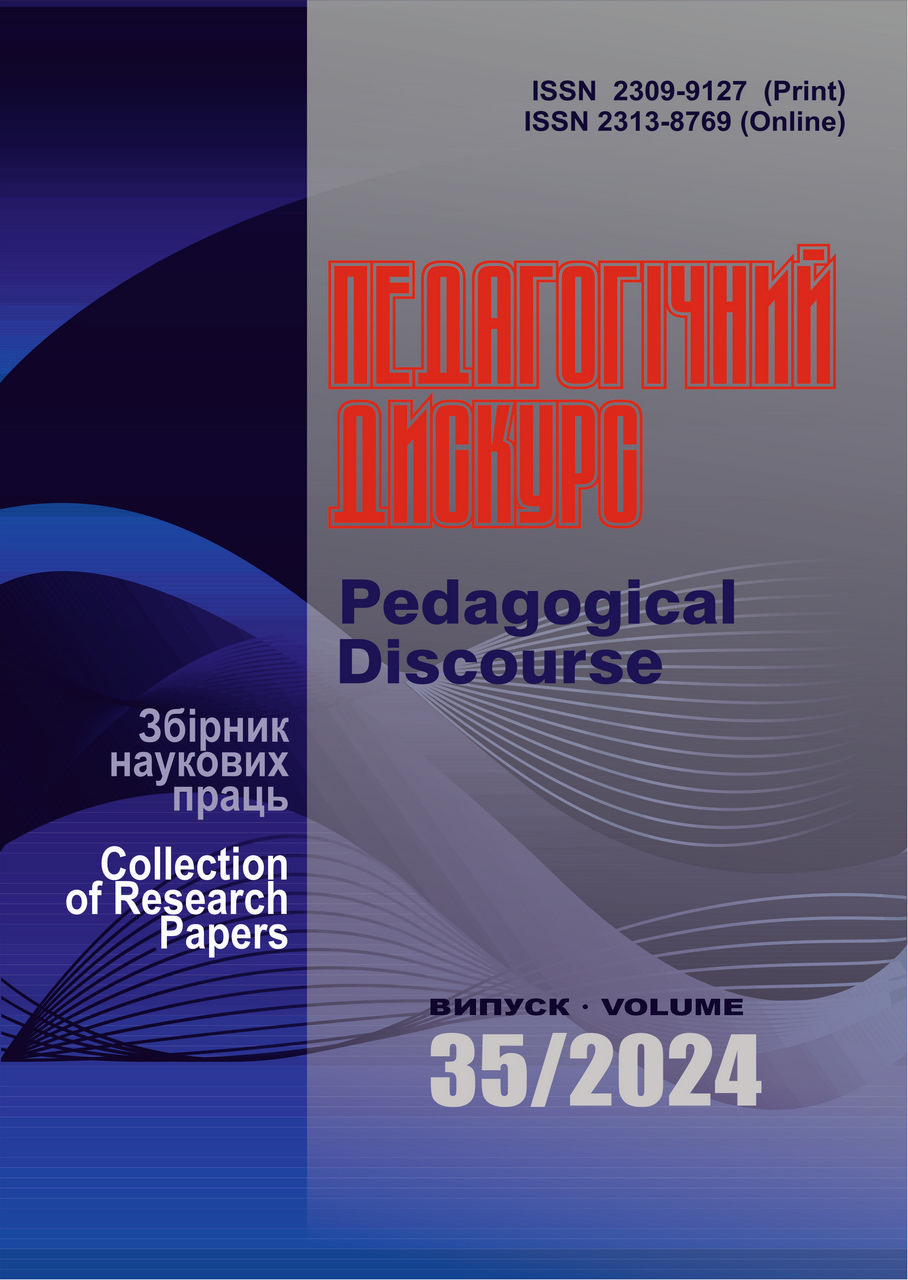Formation of Professional Competence of Future Physical Culture Teachers by Means of Innovative Health Care Technologies
Abstract
In the times of dynamic modernity, the received information changes at a dizzying speed, so an outdated source can often serve. Therefore, in the current educational process, it seems more important to seek to explore unexplored information and open new horizons than to simply accumulate knowledge. Therefore, there is a growing demand for the education of physical culture teachers, who are both inspirers and advisors, able to push away old patterns and implement innovative health care technologies.
In order to meet the new requirements, physical culture teachers must begin to take into account and use modern innovative health technologies in accordance with generally accepted teaching principles. Only a flexible and creative mind will allow to achieve a quick result to adapt to the rapid changes taking place in the world.
Based on the analysis of psychological and pedagogical literature, the generalization and systematization of the experience of professional training of future physical culture teachers, it was determined that the educational process should be aimed at a competence approach, which shifts the emphasis from the process of accumulating normatively defined knowledge, abilities and skills to the formation and development of the ability of future physical culture teachers to act practically and creatively apply the acquired knowledge and experience in practical activities.
In our study, innovative health care technologies that can be used in the educational process were presented, namely: «Endomondo», «Runkeeper», «Adidas miCoach», «Nike+GPS», «My Tracks», «Sports Tracker», «Workout Trainer», «TGFU Games», «Coaches Eye». The use of innovative health technologies in the educational and educational process forms the professional competence of future physical culture teachers and positive motivation for self-development, and significantly expands the range of pedagogical knowledge, abilities, skills and interests of future physical culture teachers.
Downloads
References
Ващенко, О. (Ред. та ін.). (2006). Готовність учителя до використання здоров’язберігаючих технологій у навчально-виховному процесі. Здоров’я та фізична культура, 8, 1–6. [in Ukrainian].
Воронін, Д. Є. (2006). Формування здоров’язберігаючої компетентності студентів вищих навчальних закладів засобами фізичного виховання. (Дис. канд. пед. наук). Херсон. [in Ukrainian].
Дорошенко, О. Ю. (2009). Поняття здоров’яформуючих і здоров’язберігаючих технологій у процесі підготовки вчителів фізичного виховання. Педагогіка, психологія та медико-біологічні проблеми виховання і спорту, 9, 41–43. [in Ukrainian].
Дубасенюк, О. А. (Ред. та ін.). (2013). Загальнокультурна компетентність: сутність та наукові підходи. Формування загальнокультурної компетенції майбутніх фахівців, 5–10. [in Ukrainian].
Іванова, Л. І. (2007). Підготовка майбутніх учителів фізичної культури до фізкультурно-оздоровчої роботи з учнями загальноосвітніх навчальних закладів. (Автореф. дис. канд. пед. наук). Київ.[in Ukrainian].
Конох, А. П. (2004). Сутність та структура професійно-педагогічної компетентності як найвищого рівня педагогічної майстерності. Педагогіка, психологія та медико-біологічні проблеми фізичного виховання і спорту, 12, 20–28. [in Ukrainian].
П’янковська, І. В. (2010). «Компетенція» та «компетентність» як провідні поняття компетентнісного підходу. Наукові записки. Сер. «Психологія і педагогіка», 15, 202–211. [in Ukrainian].
Словник-довідник з професійної педагогіки. (2006). (Ред. А. Семенова). Одеса: Пальміра. Взято з: https://www.pedagogic-master.com.ua/public/semenova/slovnik.pdf. [in Ukrainian].
Сущенко, Л. П. (2003). Теоретико-методологічні засади професійної підготовки майбутніх фахівців фізичного виховання та спорту у вищих навчальних закладах. (Автореф. дис. д-ра пед. наук). Київ. [in Ukrainian].
Щербіна, С. (2001). Формування активної професійної позиції у майбутніх педагогів. Рідна школа, 1, 66–69. [in Ukrainian].
Copyright (c) 2024 Pedagogical Discourse

This work is licensed under a Creative Commons Attribution-NonCommercial-ShareAlike 4.0 International License.

















